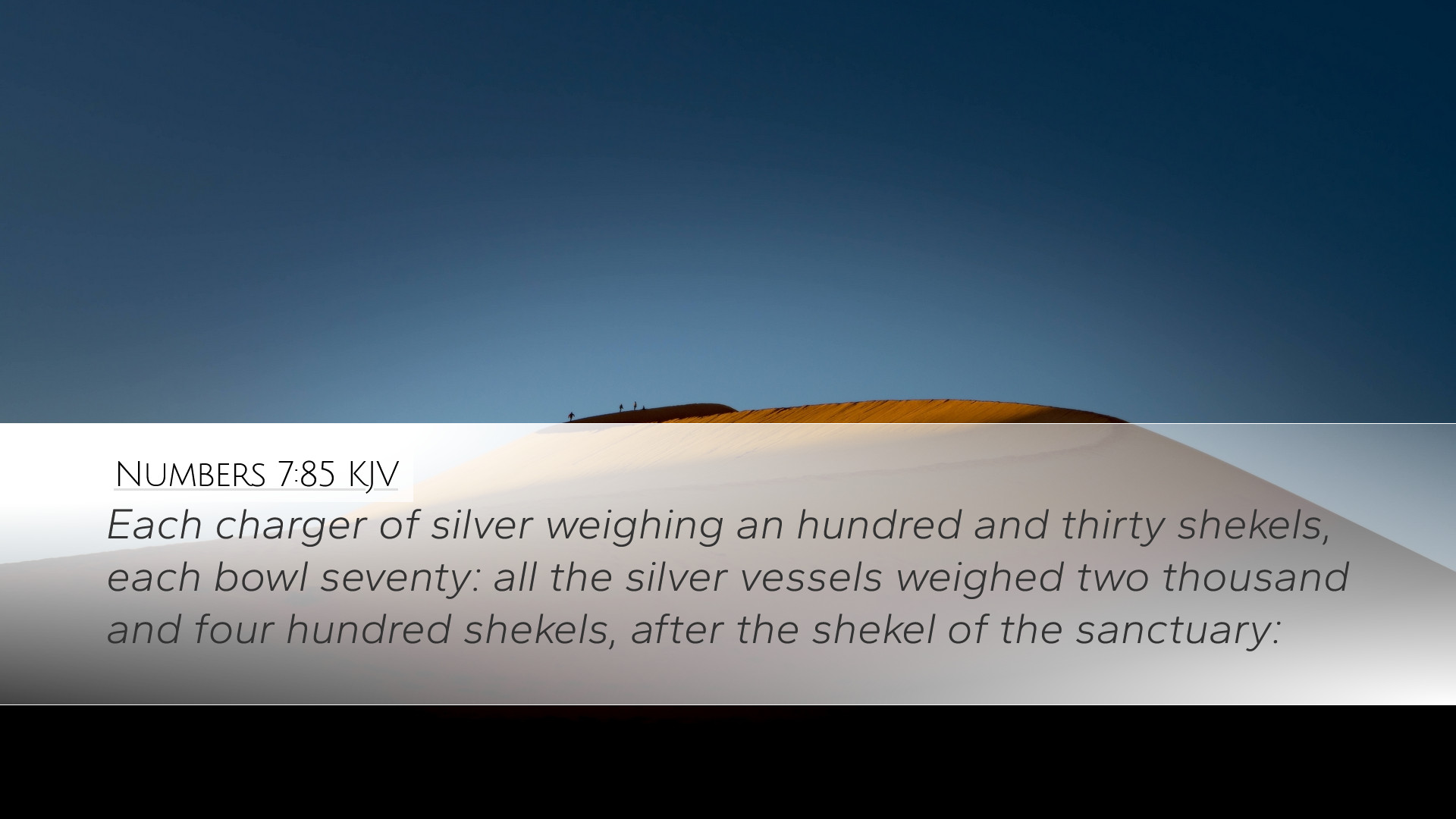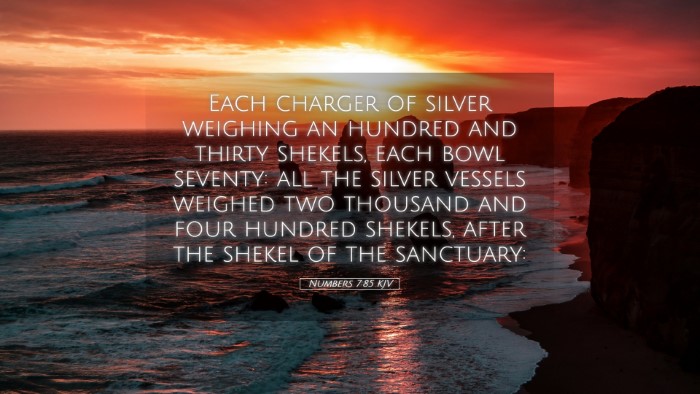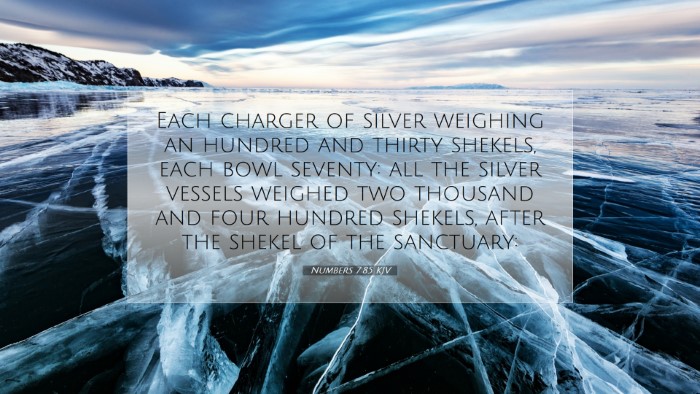Numbers 7:85
The verse states: "Each silver charger weighed an hundred and thirty shekels, and each bowl was seventy; all the silver vessels weighed two thousand and four hundred shekels, after the shekel of the sanctuary."
This specific verse highlights the significant contributions made during the dedication of the altar by the leaders of Israel, emphasizing the weight and value of the offerings presented.
Commentary Overview
This verse is part of the broader narrative concerning the offerings brought by the leaders of Israel during the inauguration of the tabernacle. The careful detailing of weights and measures demonstrates the seriousness and the sacredness of these offerings.
Matthew Henry's Insights
Matthew Henry draws attention to the various components and their significance.
- Symbolism of Silver: Silver is often associated with redemption and purity in Scripture. Henry notes that the weight of the silver signifies the great value of the priests' work for the holiness of God’s tabernacle.
- Unity in Offerings: All leaders contributed equally same in magnitude, indicating a spirit of unity and collective responsibility among the tribes of Israel.
- God’s Order: The explicit mention of weights conveys God’s order and precision, which is a reminder that every offering counts in the economy of God’s kingdom.
Albert Barnes' Commentary
Albert Barnes emphasizes the cataloging nature of these offerings to illustrate God's meticulous attention to detail in the worship of His people.
- Historical Context: Barnes situates this event within the broader narratives of Israel’s wilderness journey and highlights the importance of the tabernacle's furnishings.
- Weighing the Bullion: The exact weights provided in this verse serve as a testament to how much the leaders valued their relationship with the Lord, and their desire to honor Him through quality and quantity in their gifts.
- The Shekel of the Sanctuary: The use of a specific shekel underlines the significance of God's prescribed standards in service and offering, reinforcing that in worship, God sets the parameters.
Adam Clarke's Exposition
Adam Clarke elaborates on the nature of the offerings and their implications for present-day worship practices.
- Divine Specifications: Clarke reflects on the fact that God Himself specified these weights, which suggests He desires our best in quality and intention when we bring our offerings.
- The Concept of Dedication: The dedication of the altar is paramount, indicating a gateway for communication with God. Clarke posits that the physical weight of the offerings parallels the spiritual weight of dedication and commitment from the leaders.
- Modern Application: Clarke calls attention to how the principles of generous giving, transparency, and community responsibility mirror today’s practices in church systems, urging for a heart posture that reflects gratitude and honor to God.
Theological Implications
One cannot overlook the theological implications this scripture verse carries for both Ancient Israel and modern Christian practice.
- The Importance of Worship: Worship in the Old Testament was deeply communal and often expressed through tangible gifts. Numbers 7:85 serves as a reminder for current congregations regarding the centrality of God in community worship.
- God's Faithfulness to His People: The detailed request for offerings and their precise weights reflect God’s faithfulness and sovereignty. He provides means for worship while inviting His people to be engaged actively in their relationship with Him.
- Forming a Legacy: The legacy of dedication and quality offerings encapsulated in this verse continues to speak to believers today, emphasizing integrity and intentionality in giving.
Practical Applications
The insights garnered from this verse encourage a deeper reflection on how we approach giving and serving in today's church context.
- Intentional Giving: Are we giving to God with thoughtfulness and purpose, as the leaders of Israel did?
- Unity in Service: Just as the princes of the tribes came together, how can we foster collaboration within our churches?
- Valuing Our Offerings: This passage encourages believers to evaluate the value of their contributions—whether time, resources, or talents—measured against their dedication to God's service.
Conclusion
Numbers 7:85 serves as a rich text for understanding the principles of worship, unity, and dedication in the life of God’s people. As explored through the insights of Henry, Barnes, and Clarke, this verse is not merely a historical account but a timeless reminder of the importance of striving for excellence and intentionality in our relationship with God. The legacy of those early leaders continues to challenge and inspire contemporary believers to dedicate their resources and lives in faithful service to the Lord.


